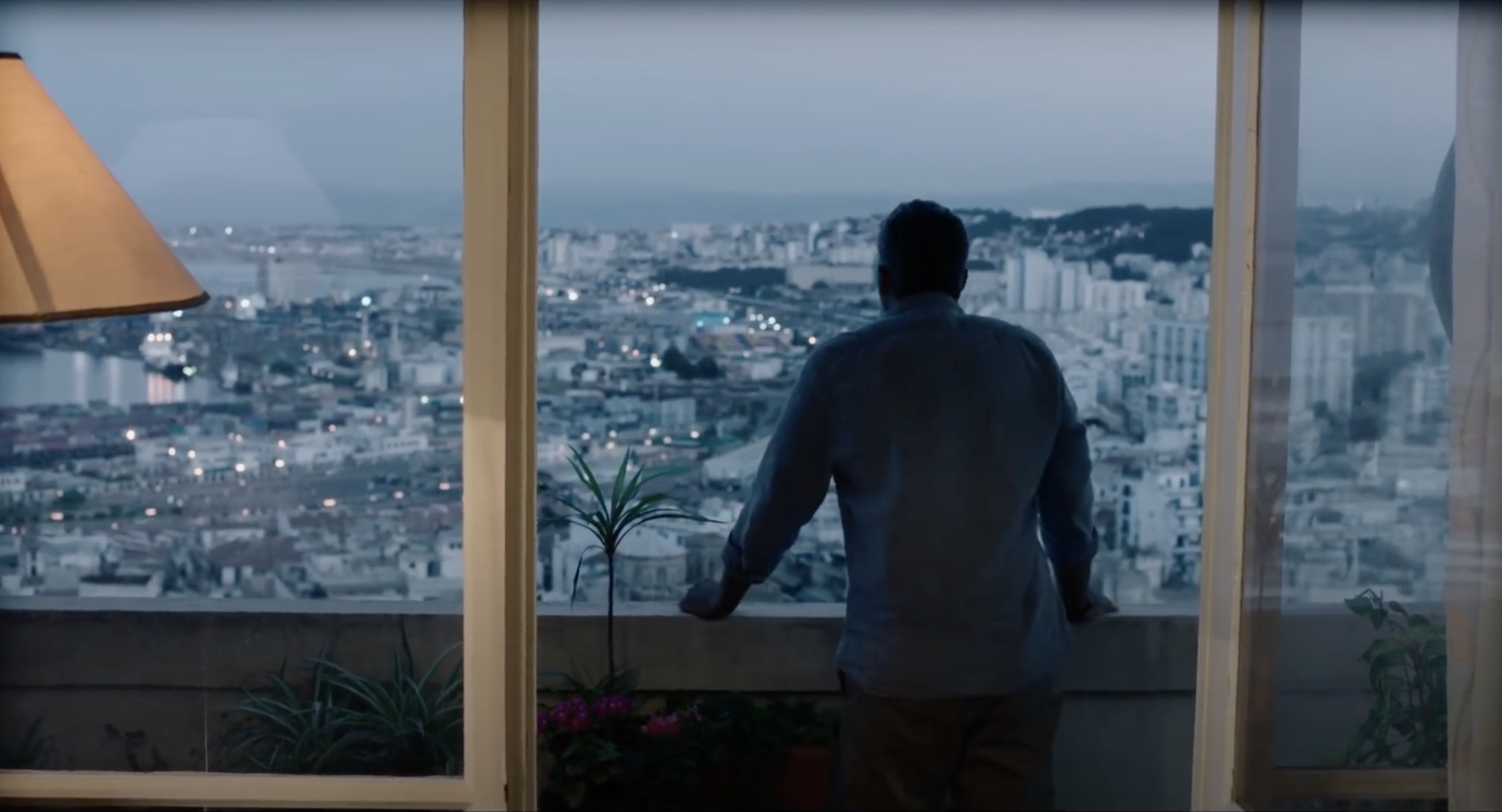Les bienheureux -The Blessed Directed by Sofia Djama
Les bienheureux - The Blessed
Directed by Sofia Djama
Starring: Salima Abada, Faouzi Bensaïdi, Adam Bessa, Sami Bouajila, Nadia Kaci, Lyna Khoudri, Amine Lansari
Year: 2017
Provenance: Algeria, Belgium, France
Author Review: Roberto Matteucci
Click Here for Italian Version
These people should not enter into our lives."
In Algeria, in 1991, the fundamentalist party of the FIS Islamic Salvation Front won the elections. The victory frightened the leadership of the country in the hands of the secular and military elite. The following year, they pushed the army to block the second round and establish a dictatorship.
It was the beginning of a terrible civil war, with violence, cruelty and terrorist acts. Between 1992 and 1998 there were over one hundred thousand dead. In the late eighties, the military took control of the territory, forcing the armed wing of the FIS, the Army of Islamic Salvation, to disband in January 2000. (1)
In the cinema, the presence of Algeria is important, both for the furious, and symbolic, struggle of liberation against France, and for the civil war against the FIS.
If Gillo Pontecorvo described the end of colonialism in The Battle of Algiers – La battaglia di Algeri, the French director Xavier Beauvois narrates in Des hommes et des dieux one of the most disgusting episodes of the fight with the Front, the killing of seven peaceful Trappist fathers.
We are in 2008, a few years have passed since the end of the war, the changes have been many but it is difficult to forget the terrible suffering.
The wounds of the survivors are indelible and are provoking another kind of tensions: the family ones. It is the topic of the film by Les bienheureux - The Blessed by the Algerian director Sofia Djama presented at the 74th Venice Film Festival.
It is the wedding anniversary of Amal et Samir, a couple from the middle class Algerian, secular, cultured, with interesting more to Europe than other Arab countries. Their social class was in the middle of the two contenders. In their environment there were many human losses, they lived with threatened, fear for them and for Algeria.
Amal and Samir discussion was no longer curable: Amal would like to leave, to abandon the country and all the troubles. She tries to convince their teenage son to study in Europe. Samir is a doctor, he knows the problems, he is aware of the difficulties, but he does not want to run away, he does not want to be a loser if he flees their enemies will triumph. The son thinks of his father, does not want to attend a European university.
The confrontation creates many tensions in the family and the attempt to celebrate the anniversary will become the defeat of both.
The film starts with a voice-over of a radio. It comes from a car in the chaotic traffic of Algiers. The night begins.
The director symbolically contains all the events in a single beautiful night in Algiers. Intimacy is told by the author herself:
"Résumer l'Algérie en un jour, a priori c'est impossible. Mais je savais que je pouvais raconter the histoire of a pays par l'intimité. And the intimité pour moi, c'est la nuit. Et j'avais besoin de situer ça. The paroxysme of the histoire se situe dans la nuit. Je suis littéraire de formation, et dans la formation littéraire, the y at quelque chose qu'on appelle le voyage du héros qui est a concept lié à la nuit. Donc, pour moi, enjeu ne pouvait être que dans la vérité de la nuit. " (2)
In the privacy of the night many events happen, many people meet each other, strange events appear.
It starts with the couple's friends, also they are nostalgic. The meeting at a friend's house is incompatible; too many misadventures, too many sufferings have caused a total disillusionment and a metaphorical lack of communication.
They represent the past, depressed and without a future.
The author creates their retaliation alternating with a group of young Algerians in which their son participates.
The teenagers of Algiers meet themselves in a loser place. The group of boys has a dubious morality and spend their time to make tattoos.
Feril is the girl, she just wants to live. Then, there is Loser, the Islamic, the fanatic. Although defeated, the extremist Islamism is returning subtly, taking root among the younger generations. Therefore, he wants to tattoo the sutra of Al-Ikhlâs – the absolute oneness of God - and in the meantime, he criticizes the radical post-modern Salafites.
The most symbolic scene is the long dialogue of the three boys, everyone speaks, but they speak to themselves, confined inside their own world: "We are all different".
The author has clear ideas about which Algeria would like, different from the direction taken.
The director uses very simple scenes and clear framing. She shot Algiers from above, with views of the white houses and the sea.
The night it seems not to end, it is a journey through the entertainment of the city, the boring of adults, who can not find a restaurant in which to dine. Places for rich but depressed and lifeless. Restaurants with a weak service, luxury club with a metal detector, pub bans on women to drink on the bar, hotel forbidden to serve wine on the terrace because the neighbours have complained.
In the house, Amir speaks with his son in French, while he often answers her in Arabic. It is the representation of the impossible dialogue between two generations raped both by a bloody conflict.
(1) https://www.cia.gov/library/publications/the-world-factbook/geos/ag.html



